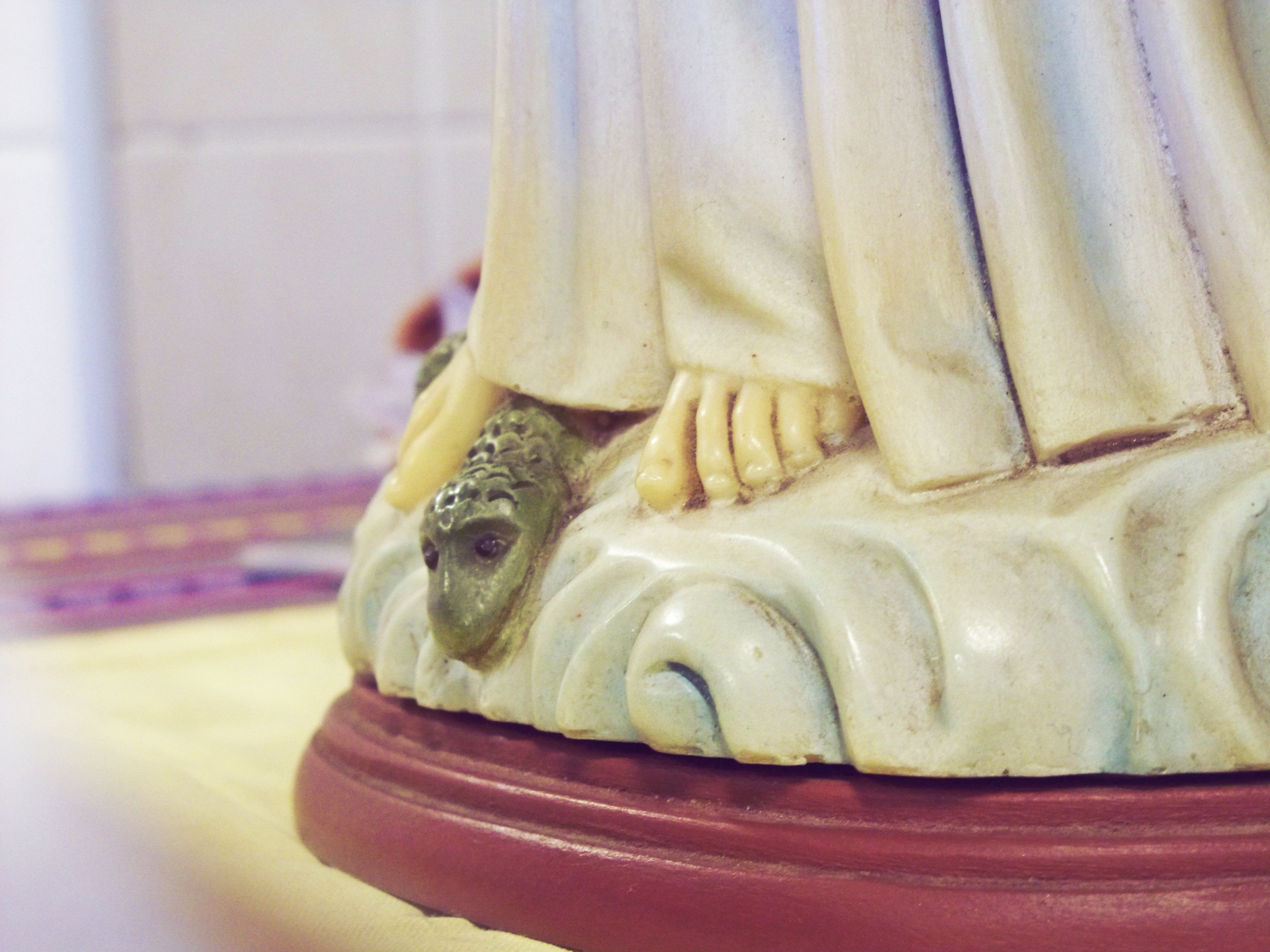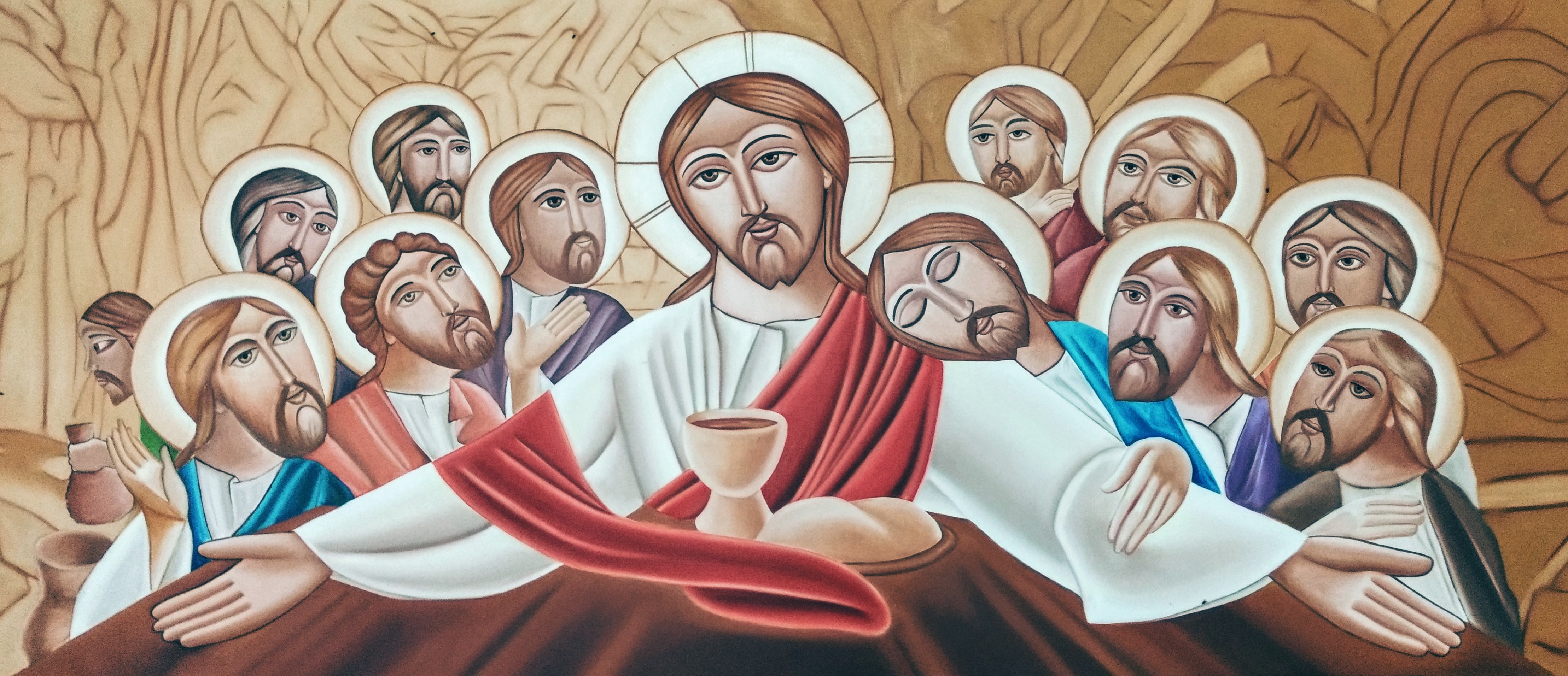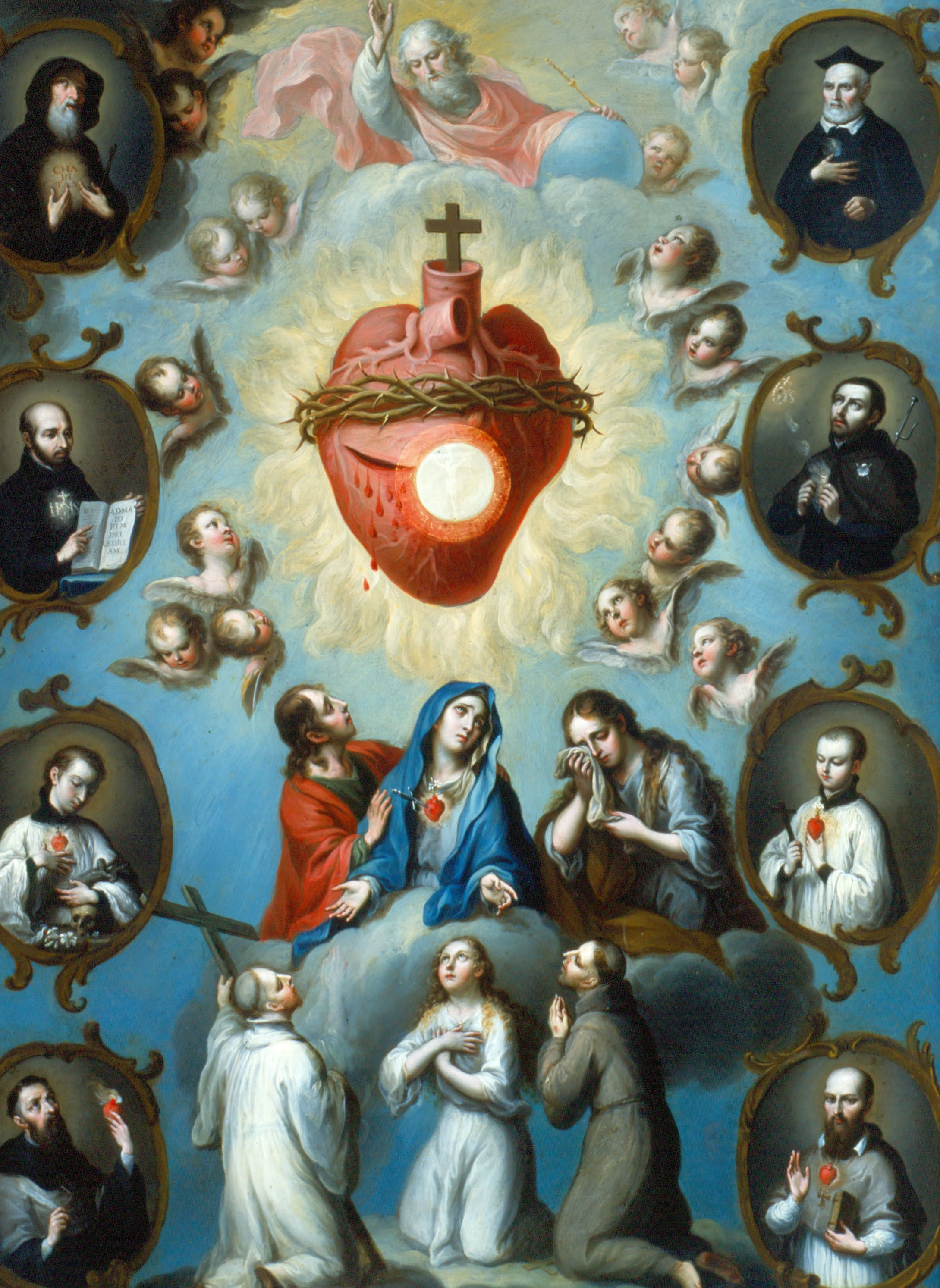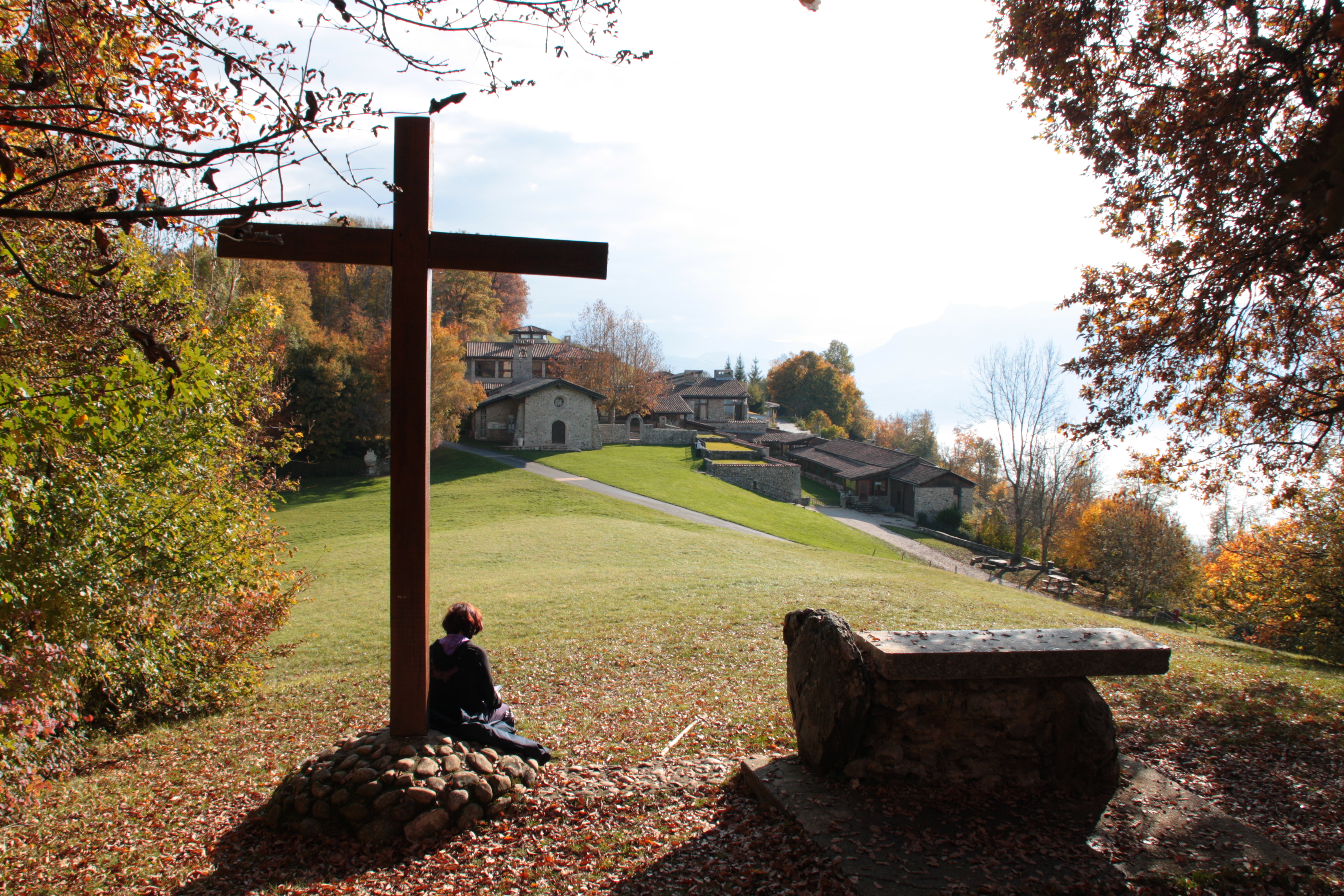Today is the Solemnity of the Ascension in many dioceses. Others transfer it to this coming Sunday, but I will focus on the readings for the Solemnity in this reflection.
Jesus’ Ascension gives us hope that we can also rise with Him. In the second reading, Saint Paul speaks of “the hope that belongs to his call, what are the riches of glory in his inheritance among the holy ones, and what is the surpassing greatness of his power for us who believe, in accord with the exercise of his great might, which he worked in Christ . . . seating him at his right hand in the heavens” (Eph. 1:18–20). What does this mean?
Breaking this passage apart phrase by phrase, we can take “the hope that belongs to his call,” to mean the hope that we have as Christians called by the Father. And what we hope for are the “riches of glory in his inheritance among the holy ones,” which means the great glory that awaits us in heaven with the saints. “[T]he surpassing greatness of his power for us who believe,” can be described as the power of God at work in the faithful. This heavenly glory and power is “in accord with the exercise of his great might, which he worked in Christ.” In other words, as Christians, we await glory and power similar to the heavenly glory and power that Christ Himself received when He was raised to the right hand of the Father in the heavens.
Taking this into consideration, it should be of no surprise to us that Jesus says in the Gospel that those who believe “will drive out demons . . . speak new languages . . . pick up serpents with their hands, and if they drink any deadly thing, it will not harm them. They will lay hands on the sick, and they will recover” (Mark 16:17–18). This may seem like a stretch for us, but the first followers of Jesus did exactly these things. Saint John drank poisoned wine and survived. Saint Peter performed healings. Those present on Pentecost spoke new languages. Exorcists continue to drive out demons today.
When Christ ascended, He did not do so to give us a spectacle. Otherwise, the angels would not have asked the onlookers why they were still staring at the sky. He showed us that we can also rise with Him. He rose as a divine Person with a divine nature and a human nature, a human body and a human soul, and proved that those who believe will ascend after him, receiving their bodies and souls in glory at the end of time and dwelling in the glory of God with the angels and saints.
Although we should probably not go looking for opportunities to drink poisoned wine, the truth of the Ascension should cause us to reflect on our own Christian commitment. The first disciples boldly practiced the Faith in a hostile environment. Can we manage to conduct ourselves like “those who believe” in comparably easier times?
Hoy es la Solemnidad de la Ascensión en muchas diócesis. Otros lo trasladan a este próximo domingo, pero yo me centraré en las lecturas de la Solemnidad en esta reflexión.
La Ascensión de Jesús nos da la esperanza de que nosotros también podemos resucitar con Él. En la segunda lectura, San Pablo habla de “la esperanza que les da su llamamiento, cuán gloriosa y rica es la herencia que Dios da a los que son suyos y cuál la extraordinaria grandeza de su poder para con nosotros, los que confiamos en él, por la eficacia de su fuerza poderosa. Con esta fuerza resucitó a Cristo de entre los muertos y lo hizo sentar a su derecha en el cielo.” (Efesios 1,18-20). ¿Qué quiere decir esto?
Desglosando este pasaje frase por frase, podemos entender que “la esperanza que les da su llamamiento” significa la esperanza que tenemos como cristianos llamados por el Padre. Y lo que esperamos es la “gloriosa y rica…herencia que Dios da a los que son suyos”, lo que significa la gran gloria que nos espera en el cielo con los santos. “[L]a extraordinaria grandeza de su poder para con nosotros, los que confiamos en él”, puede describirse como el poder de Dios obrando en los fieles. Esta gloria y poder celestiales están “por la eficacia de su fuerza poderosa”, que obró en Cristo. Con otras palabras, como cristianos, esperamos gloria y poder semejante a la gloria y el poder celestiales que Cristo mismo recibió cuando fue elevado a la diestra del Padre en los cielos.
Teniendo esto en cuenta, no debería sorprendernos que Jesús diga en el Evangelio que los que crean “arrojarán demonios… hablarán lenguas nuevas, cogerán serpientes en sus manos, y si beben un veneno mortal, no les hará daño; impondrán las manos a los enfermos y éstos quedarán sanos” (Marcos 16,17-18). Esto puede parecernos exagerado, pero los primeros seguidores de Jesús hicieron exactamente estas cosas. San Juan bebió vino envenenado y sobrevivió. San Pedro realizaba curaciones. Los presentes en Pentecostés hablaron nuevos idiomas. Los exorcistas siguen expulsando demonios hoy en día.
Cuando Cristo ascendió, no lo hizo para darnos un espectáculo. De lo contrario, los ángeles no habrían preguntado a los espectadores por qué seguían mirando al cielo. Nos mostró que también podemos resucitar con Él. Resucitó como Persona divina con naturaleza divina y naturaleza humana, cuerpo humano y alma humana, y demostró que los que creen ascenderán tras él, recibiendo sus cuerpos y almas en gloria al final de los tiempos y habitando en la gloria de Dios con los ángeles y los santos.
Aunque probablemente no deberíamos buscar oportunidades para beber vino envenenado, la verdad de la Ascensión debería hacernos reflexionar sobre nuestro propio compromiso cristiano. Los primeros discípulos practicaron audazmente la fe en un ambiente hostil. ¿Podremos comportarnos como “aquellos que creen” en tiempos comparativamente más fáciles?
 David Dashiell is a freelance author and editor in Nashville, Tennessee. He has a master’s degree in theology from Franciscan University, and is the editor of the anthology Ever Ancient, Ever New: Why Younger Generations Are Embracing Traditional Catholicism.
David Dashiell is a freelance author and editor in Nashville, Tennessee. He has a master’s degree in theology from Franciscan University, and is the editor of the anthology Ever Ancient, Ever New: Why Younger Generations Are Embracing Traditional Catholicism.
Feature Image Credit: Anto Altare, cathopic.com/photo/3002-i-will-put-enmity-between-you-and-the-woman


 Allison Gingras (
Allison Gingras ( 
 Kate Taliaferro is an Air Force wife and mother. She is blessed to be able to homeschool, bake bread and fold endless piles of laundry. When not planning a school day, writing a blog post or cooking pasta, Kate can be found curled up with a book or working with some kind of fiber craft. Kate blogs at
Kate Taliaferro is an Air Force wife and mother. She is blessed to be able to homeschool, bake bread and fold endless piles of laundry. When not planning a school day, writing a blog post or cooking pasta, Kate can be found curled up with a book or working with some kind of fiber craft. Kate blogs at 
 Tami Urcia grew up in Western Michigan, a middle child in a large Catholic family. She spent early young adulthood as a missionary in Mexico, studying theology and philosophy, then worked and traveled extensively before finishing her Bachelor’s Degree in Western Kentucky. She loves tackling projects, finding fun ways to keep her little ones occupied, quiet conversation with the hubby and finding unique ways to love. She works full time, is a guest blogger on
Tami Urcia grew up in Western Michigan, a middle child in a large Catholic family. She spent early young adulthood as a missionary in Mexico, studying theology and philosophy, then worked and traveled extensively before finishing her Bachelor’s Degree in Western Kentucky. She loves tackling projects, finding fun ways to keep her little ones occupied, quiet conversation with the hubby and finding unique ways to love. She works full time, is a guest blogger on 


 Dr. Alexis Dallara-Marsh is a board-certified neurologist who practices in Bergen County, NJ. She is a wife to her best friend, Akeem, and a mother of two little ones on Earth and two others in heaven above.
Dr. Alexis Dallara-Marsh is a board-certified neurologist who practices in Bergen County, NJ. She is a wife to her best friend, Akeem, and a mother of two little ones on Earth and two others in heaven above.
 Emily Jaminet is a Catholic author, speaker, radio personality, wife, and mother of seven children. She earned a bachelor’s degree in mental health and human services from the Franciscan University of Steubenville. She is the co-founder of
Emily Jaminet is a Catholic author, speaker, radio personality, wife, and mother of seven children. She earned a bachelor’s degree in mental health and human services from the Franciscan University of Steubenville. She is the co-founder of 


 Kathryn Mulderink, MA, is married to Robert, Station Manager for Holy Family Radio. Together they have seven children (including Father Rob), and seven grandchildren. She is President of the local community of Secular Discalced Carmelites and has published five books and many articles. Over the last 30 years, she has worked as a teacher, headmistress, catechist, Pastoral Associate, and DRE, and as a writer and voice talent for Catholic Radio. Currently, she serves the Church by writing and speaking, and by collaborating with various parishes and to lead others to encounter Christ and engage their faith. Her website is
Kathryn Mulderink, MA, is married to Robert, Station Manager for Holy Family Radio. Together they have seven children (including Father Rob), and seven grandchildren. She is President of the local community of Secular Discalced Carmelites and has published five books and many articles. Over the last 30 years, she has worked as a teacher, headmistress, catechist, Pastoral Associate, and DRE, and as a writer and voice talent for Catholic Radio. Currently, she serves the Church by writing and speaking, and by collaborating with various parishes and to lead others to encounter Christ and engage their faith. Her website is 


